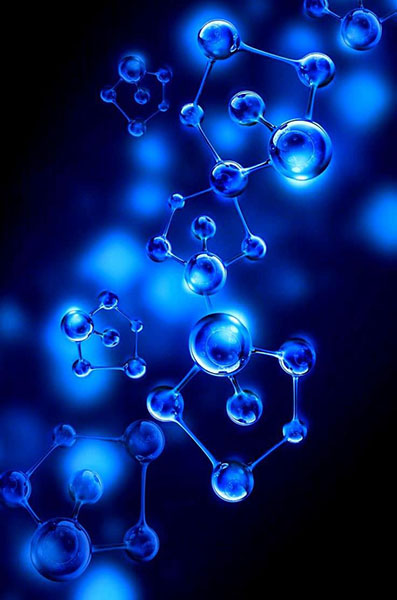
What are Peptides?
Peptides are a groundbreaking discovery that is transforming the way we approach health maintenance and the extension of active longevity. These small molecules play a vital role in optimizing the body’s functions, significantly enhancing quality of life and promoting well-being for years to come.
According to Wikipedia, peptides were first discovered in 1900 when the German organic chemist Emil Fischer proposed that they consist of chains of amino acids linked by specific chemical bonds. By 1902, irrefutable evidence of the existence of stable peptide bonds had been confirmed.
History of Discovery
For many years, scientists sought to understand the role that peptides play in the human body. Teams of researchers conducted countless experiments, working day and night to study how peptides function and to develop methods for synthesizing them in laboratory settings. Significant breakthroughs, however, were made in the 1960s during classified experiments at the Military Medical Academy, where research was focused on counteracting the effects of potential nuclear war.
Thanks to the work of a scientific team led by Khavinson and Morozov, the precise functions of numerous amino acid sequences were identified for the first time, along with detailed descriptions of how they operate. They also developed innovative methods for the synthesis and industrial production of natural peptides.
Peptides are essentially proteins made up of specific amino acid sequences that regulate cellular processes. They are synthesized in all living organisms and play key roles in regulating biological functions, including tissue repair and cell regeneration.
From this research, special peptides were isolated from the organs of young animals, which have the ability to restore and maintain optimal cellular metabolism.
Difference Between Peptides and Drugs
The key distinction between peptide-based supplements and conventional drugs lies in their regulatory action. Peptides have the unique ability to stimulate cell functions when they are suppressed and, conversely, to reduce their activity if it exceeds normal levels. This property has led to the creation of a new class of therapeutic drugs and geroprotectors, known as peptide bioregulators.
As we age, or when pathologies develop, the body’s natural peptide synthesis is disrupted, leading to cellular damage and accelerated aging. Peptide-based preparations act like “information keys,” activating necessary cellular functions and regulating the body's overall performance. A deficiency in peptides leads to tissue deterioration and premature aging of organs.
The earlier the body receives support in the form of these vital components, the better the chances of preserving health and well-being for many years. Each peptide has a specific function, and every organ requires its own particular peptides. You can explore more about the different categories of peptides in our catalog.
Creation of New Drugs

In the early 1990s, the military program was discontinued, prompting talented scientists to unite under the leadership of Vladimir Khavinson at the Institute of Bioregulation and Gerontology. After more than thirty years of research, this team developed specialized drugs known as peptide bioregulators, and later, bio supplement enhancers based on them, which are now available in our online store.
Additionally, while studying the processes of aging and methods to slow them down, specialists at the Institute of Gerontology made a significant discovery: the inclusion of peptides in the diet of experimental mice increased their life expectancy by 30-38%.
Part of the research into peptide supplement development was conducted at the Kyiv Institute of Gerontology, where remarkable results were achieved: the use of peptides led to nearly a twofold reduction in human mortality, demonstrating their powerful geroprotective properties.
Ultimately, these findings laid the groundwork for a series of new high-performance supplements, which, after extensive laboratory testing, were finally put into mass production in 2010.
International Recognition
The discovery of peptide regulators can be compared to the launch of a satellite - it was a groundbreaking achievement in biology. Over 40 experiments have consistently confirmed that aging and many diseases, including cancer, are rooted in the disruption of protein synthesis regulation, which leads to metabolic failures and the development of various pathologies. In one experiment, frog eggs were used, and different peptide preparations were applied. The peptides triggered the growth of corresponding tissues: for instance, liver peptides stimulated the growth of liver tissue.
Moreover, the experiments demonstrated an increase in the number of cell divisions, allowing scientists to surpass the Hayflick limit (47 divisions). The introduction of the epiphysis peptide into cell cultures extended the number of cell divisions to 64, surpassing the Hayflick limit by 42%.
Independent experiments conducted in Geneva, under the supervision of an international panel, verified these results five times. Annual courses of peptides derived from the epiphysis, thymus, brain, blood vessels, liver, cartilage, thyroid, and pancreas led to a nearly twofold reduction in mortality.
This reduction was linked to improved function of the immune, neuroendocrine, and cardiovascular systems, as well as enhanced brain function and increased bone and cartilage density.

Geroprotectors
Today, scientists have developed the fifth generation of complex peptide geroprotectors called linguals. These drugs come in liquid form, offering high effectiveness due to their direct delivery of active substances, bypassing the gastrointestinal tract. The primary goal of these formulations is to maintain optimal health and slow down the aging process.
Peptide bioregulators are one of the most effective solutions for revitalization and rejuvenation, as well as for disease prevention, including cancer. You can begin taking these supplements as early as age 25-30, but for individuals aged 40 and above, their use becomes especially crucial.
This approach renews the body at a cellular level, not only regulating and synchronizing cyclic processes but also enhancing the capacity for cell division without the risk of internal mutations.
Today, peptide bioregulators are widely used to address various medical conditions and are recommended as a complement to traditional medical treatments.
Results of Peptide Application
Long-term studies have undeniably demonstrated the high efficacy of peptide preparations in treating various pathologies across all age groups. One of the key benefits of peptide bioregulators is their complete lack of side effects.
Over the course of several decades, more than 15 million people with various health conditions have used these treatments, with an average effectiveness rate exceeding 85%. It has been determined that individuals aged 25 to 60 need only a few courses of peptides per year to maintain essential body functions and significantly slow down premature aging. Even in healthy individuals, the involution of vital systems begins with age. The immune, neuroendocrine, and central nervous systems are the first to be impacted by environmental stressors.

This is why it’s crucial to start thinking about age-related prevention early on. Organizing a proper daily routine and selecting a peptide-based program for recovery and rejuvenation can help maintain overall health.
The sooner you begin this process, the more remarkable the results will be!
Summary
One of the most valuable health benefits of peptides is their ability to safely regulate the body's natural processes using mechanisms that have been ingrained in us since birth. Peptides act as a system that controls cellular activity, enabling natural bioregulation at the cellular level.
For patients, this means restoring normal cell function, slowing down negative processes, and reallocating resources to repair damaged tissues. For healthy individuals, peptides activate the immune system to its peak performance, slowing down the aging of organs—even if that process has already begun. This allows you to live a full and healthy life, regardless of your chronological age.
Peptide bioregulation is an ideal solution for extending biological youth and significantly lengthening the period of active, healthy living. What’s more, this method is safe from overdose, has no side effects, and poses no contraindications. It activates your body's natural recovery mechanisms, enhancing strength, youthfulness, and overall health.
For more details on peptide application methods and customer reviews, visit our blog.
You can also reach out to our specialists for a personalized consultation via our live chat.

